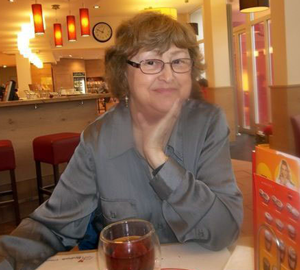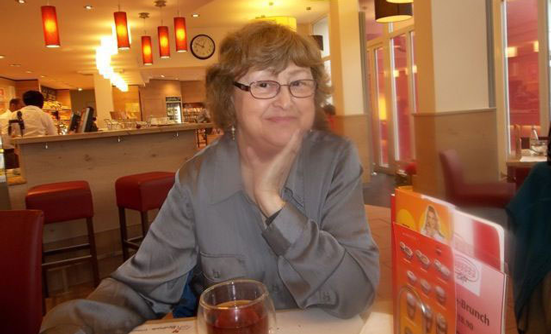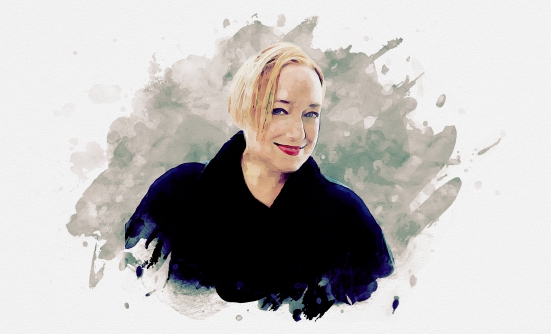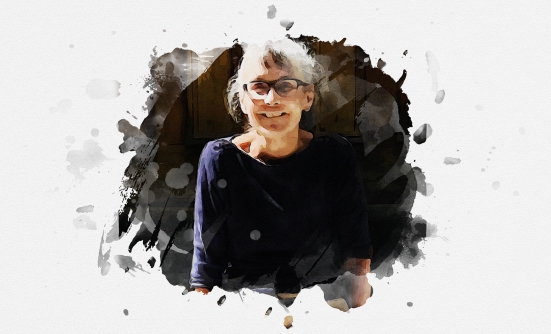Eleven years ago, at the age of 63, Katie LePage needed to find a new family doctor when her doctor left the practice.
“My new doctor wanted to do some baseline bloodwork,” remembered Ms. LePage. “I didn’t have any unusual symptoms, but I was getting sick a lot. However, I worked with young children, so I was exposed to germs every day.”
Her bloodwork showed an elevated blood protein, so her doctor did another blood test, which showed the same results.
“He told me it could be a sign of a blood cancer,” recalls Ms. LePage. “Of course you don’t ever want to hear that word. I had to wait one week for an appointment with the oncologist. That was the worst week of my life, waiting and not knowing. I remember sitting in the oncologist’s office, where I was surrounded by many very ill people and thinking, ‘Is this going to be me some day?’ It was scary.”
At that time, Ms. LePage’s oncologist wasn’t too concerned, because her blood protein level wasn’t very high. He did some additional tests and diagnosed her with a condition called monoclonal gammopathy of undetermined significance (MGUS), which in itself is not significant, but it could lead to another blood disease, including multiple myeloma.
“My blood protein level remained stable for 4 years, until 2008, when the number became elevated, and I was diagnosed with multiple myeloma,” Ms. LePage said. “My multiple myeloma was staged somewhere between .5 and 1, so there was no other bone damage or any of the other nasty things that can be involved with the disease. Many patients with multiple myeloma are very sick by the time they are diagnosed, because the symptoms mimic so many other conditions.”
Now a 7-year multiple myeloma survivor, Ms. LePage’s treatment over the years has consisted of various chemotherapy drugs and a stem-cell transplant. “What happens with multiple myeloma is that you enter remission or a stable drug phase,” she explained. “My first chemotherapy protocol put me into a stable disease phase for about 10 months. Unfortunately, it made me very weak. I was still employed as a children’s bookseller and storyteller, but after 2 incidents where I turned white and felt like I was going to keel over, I decided I couldn’t continue working while taking this drug. It was a hard decision, because I loved my job. But I wanted to live, and there were no other drug choices at the time. Today, there are better medications and targeted therapies.”
Ms. LePage said that when her myeloma stopped responding to this drug, her oncologist recommended a stem-cell transplant, “but I was just too scared.” Instead, she began taking another medication, which again put her into a stable disease phase.
“I’ve been fortunate to respond so well to these medications. Some patients don’t respond to them at all. Others get very long remissions,” said Ms. LePage.
The years of treatments weakened her immune system, however, and resulted in repeat pneumonia-related hospitalizations. This led her to reluctantly undergo a stem-cell transplant in February 2010.
After the transplant, she enjoyed 18 months off therapy. “My doctor recommended a maintenance medication for stem-cell transplant patients, but I declined,” said Ms. LePage. “I had the transplant to get off medication and wanted a chance for my body to recover from treatment. My immune system was able to rebuild itself, and I had a better quality of life. When I did get sick, it wasn’t serious.”
Eventually, her blood protein numbers began to rise, and she started chemotherapy again. When that drug stopped working, she switched to the protocol that keeps her multiple myeloma under control today.
My Nurse Navigator
Since her initial MGUS diagnosis, Ms. LePage says that her nurse navigator has been invaluable.
“Arlene has made everything easier,” she noted. “Anytime I have a problem, I call her. She gets back to me that day, and we develop a plan. She’s been in many meetings and check-ups with my doctor, and she is the person who teaches me about each drug. Whenever there’s something new, she reviews it with me. She’s very knowledgeable, and if she doesn’t know the answer, she will find it.
“When my first oncologist was leaving the center where I was being treated, I considered switching to a facility that was closer to home,” continued Ms. LePage. “I ended up staying, in part because of Arlene. She’s wonderful.”
Ms. LePage also applauds the oncology treatment nurses, who she said are “the hands-on caregivers” for anyone battling cancer.
“They provide a level of comfort during treatment,” commented Ms. LePage. “They know this disease, and they will notice things that you may miss. One day, a very sharp nurse recognized that I was dehydrated, because I was a bit droopy when I went in for treatment. I thought it was just the extreme heat, but sure enough, I felt much better after a fluid infusion.”
A New Look at Life

Although Ms. LePage suffers from some fatigue and neuropathy as a result of her multiple myeloma and the drugs used to control it, she stays on the go. Five years ago she re-entered the workforce as a patient ambassador, providing educational programs for nurses, doctors, patients, and support groups.
“I tell them my story and give a patient’s perspective about what it’s like to live with this disease,” said Ms. LePage. “I’m very thankful to still be making a contribution to the world. I’m always learning something new, and I enjoy traveling and connecting with other people. I even help train new ambassadors for the program.”
She concluded, “Multiple myeloma, or any cancer, really gives you a new appreciation for life, and all the gifts and blessings you’ve been given. I’m dealing with a serious, chronic disease, yet I’m thankful that I live in a time where scientists are discovering drugs that are so helpful to patients with multiple myeloma. This may sound odd, but there’s never been a better time to have this disease. I’m grateful for the drugs that are available and the wonderful care I’ve received.”















